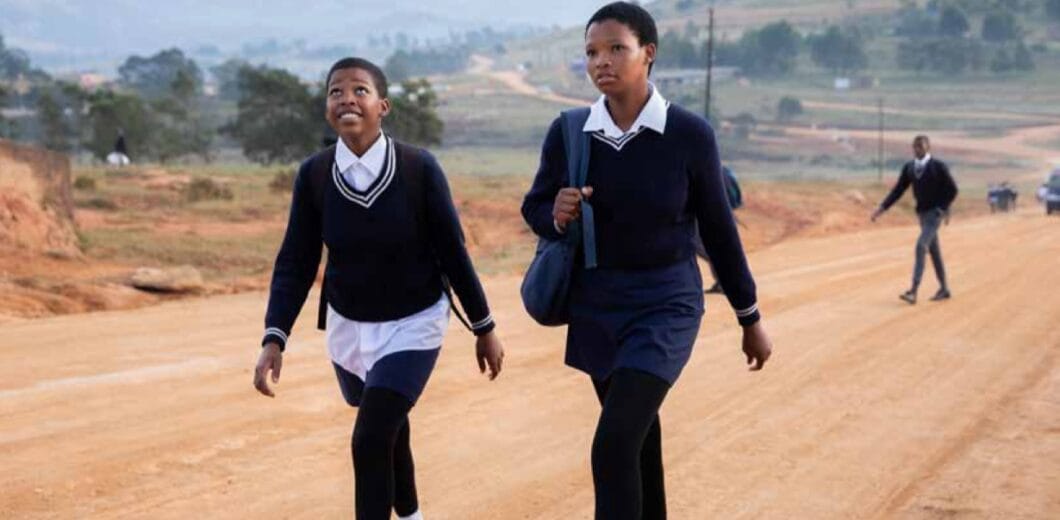“The global AIDS response is collapsing—not because we lack solutions, but because we’ve abandoned the will to act”.
The Warning from UNAIDS
On Thursday, 10 July 2025, UNAIDS launched its 2025 Global AIDS Update, AIDS, Crisis and the Power to Transform, and the message is loud and clear; the global AIDS response is in crisis, and silence is complicity.
The report reveals that by the end of 2024, the world was on the brink of a breakthrough; HIV infections had dropped 40% since 2010, AIDS-related deaths were down by 56%, and new groundbreaking long-acting HIV preventive vaccines like lenacapavir offered real hope for an HIV-free generation.
But instead of leaping forward, the response has been forced to its knees, not by science or communities, but by political decisions; by donors and policymakers now betraying and dismantling decades of hard-won progress.
This Is Not Failure—It’s Abandonment
Let’s be clear, this crisis is not a consequence of failure. It is the cost of inaction, the price of political cowardice and donor fatigue. It is what happens when global solidarity is replaced by self-interest and when those with power choose to look away. We must name the truth….
“This crisis is not an accident, it’s an abandonment by donors who have grown tired, by governments that criminalize the vulnerable and populations at higher risk of HIV, and by leaders who trade lives for politics”.
UNAIDS projects that over 6 million people could become newly infected with HIV, 620,000 children will miss out on treatment, and 4 million more could die from preventable AIDS-related illnesses by 2029 if current funding levels are not restored.
These are not just projections, these are direct outcomes of funding decisions already made —the cost of apathy, the price of political convenience and mass abandonment.
“We are not losing ground because of the virus, we are losing it because of decisions made in air-conditioned rooms by people who will never have to explain to a child why her mother died from a preventable illness. The world is not broke, It is choosing not to care”
Cracks in the Foundation — the stakes are Life and Death
Resources for HIV programs are dwindling while new HIV infections remain stuck at 1.3 million unchanged since 2023. This is not stagnation, it’s surrender.
Remember the sudden and brutal withdrawal of the United States, the largest donor to the global HIV response, it already triggered systemic shocks with catastrophic consequences, we may take longer to recover from. https://healthpolicy-watch.news/millions-at-risk-of-hiv-infection-and-death-after-us-funding-cuts-warns-unaids/.
“The silence of wealthy nations is deafening and their excuses ring hollow. Some cite shifting priorities—national security, climate-change, economic pressure….name it….but what priority outweighs saving lives? What greater security exists than healthy, lively and resilient communities?”
Treatment and prevention programs for those at-higher-risk of HIV infections including adolescent girls and young women who face four times the risk than their male-counterparts, young people are key populations all remain disrupted and WE, the communities who are the lifeblood of this movement are still scrambling to survive.
“How do we explain this to a mother whose child has been cut off from antiretroviral treatment? To a 14-year-old girl in sub-Saharan Africa whose HIV prevention Programme was erased overnight? To key population communities criminalized and cast aside by governments now emboldened by donor retreat?”
To those in Power— this is on YOU
To the donors slashing budgets in the name of “efficiency” and to the governments still hesitating to step up; Are you prepared to spend ten times more tomorrow managing the disaster you could have prevented today?
Let’s be clear—you do not get to celebrate past victories while abandoning the present fight. You do not get to speak of “equity” while cutting the very programs that protect the world’s most vulnerable. This is not fiscal discipline; it is fiscal negligence.
How can we be done, when;
- 9.2 million people living with HIV—most in sub-Saharan Africa and Asia are still waiting for treatment.
- Only 55% of children with HIV are receiving life-saving therapy, while infections rise fastest among young people.
- Key populations—sex workers, gay men, transgender people, people who inject drugs—are still criminalized and erased from national responses.
- Stigma, discrimination, and gender-based violence continue to sabotage access to HIV prevention, treatment and care support, while also driving silence, and fueling new infections.
- Prevention services are being dismantled, even as infections rise in 32 countries and soar by 94% in the Middle East and North Africa.
- HIV and populations at higher-risk of HIV infection remain criminalized in too many countries.
Tell us—when did it become a crime to survive?
The Fight is far from over – WE ARE NOT DONE!
Let this be your wake-up call. We were winning. Now, we’re bleeding. But bleeding is not the same as being beaten if we choose to act now.
The unfinished fight against AIDS is not a burden, it is a test of our shared humanity and collective solidarity. It is your responsibility and it will define your legacy in the number of lives saved, or the number of lives lost.
This is not a time for silence.
Not a time for statements.
Not a time for apologies.
This is the moment to act.
ACT NOW—because communities are watching.
ACT NOW—because hope flickers in the hearts of millions who are one decision away from despair.
ACT NOW—because the house isn’t just on fire, we lit the match, and now we’re watching it burn while holding buckets we refuse to use.
The real scandal isn’t that we are failing. It’s that we are choosing to. Let us be reminded that; Every delay deepens the wound. Every funding cut tells a child, a mother, a community that your life is negotiable.
“Every silence is complicity dressed as diplomacy”
We can still end AIDS as a public health threat by 2030. The science exists, the tools are here and the path is clear. What’s missing is the will and we must work towards reviving it. History will not ask whether we had the answers. It will ask whether we had the courage. Whether we acted when it mattered most. Whether we stood with the communities who carried this response on their backs.
And when that chapter is written—will your name be on the side of action? Or the side of excuse?

